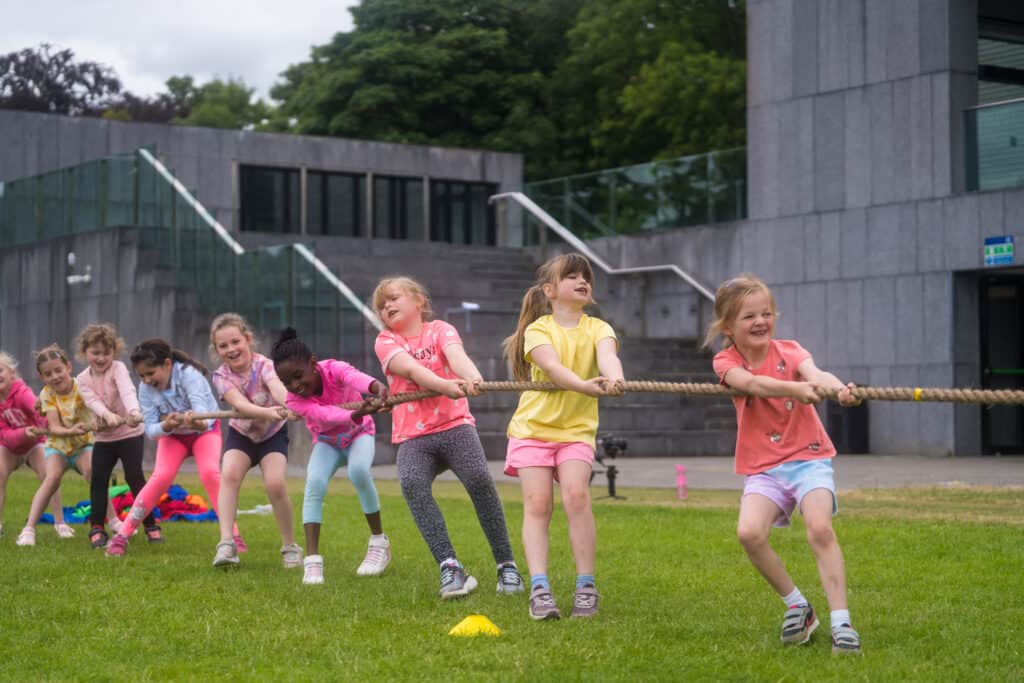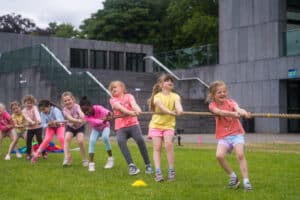Summer camp is an excellent way for children to learn new skills, make friends, and develop independence. While many traditional camps focus on a single activity or theme, multi-activity camps offer a diverse range of activities that can benefit a child’s physical, mental, and social health. In this article, we will explore the health and social benefits of multi-activity summer camps for children.
Physical Benefits
One of the most apparent benefits of multi-activity summer camps is the physical activity they provide. Instead of sitting in front of screens all day, children get to be active and engage in a variety of physical activities.
Regular physical activity is crucial for children’s development. It helps build strong bones and muscles, reduces the risk of obesity and chronic diseases, and improves cardiovascular health. Additionally, physical activity can help children develop essential motor skills, such as coordination, balance, and agility. Multi-activity summer camps provide an excellent opportunity for children to get the recommended amount of physical activity each day while having fun.
Mental Benefits
Multi-activity summer camps can also provide significant mental health benefits for children. Children who attend summer camps often experience reduced stress levels and improved self-esteem. The opportunity to learn new skills and succeed in different activities can boost a child’s confidence and self-worth.
Moreover, multi-activity summer camps provide an excellent opportunity for children to disconnect from technology and reconnect with nature. Spending time outdoors and engaging in physical activity has been shown to reduce stress and improve mood.
Social Benefits
One of the most significant benefits of multi-activity summer camps is the opportunity for children to socialize and make new friends. Camp provides a unique environment where children can meet and interact with peers from diverse backgrounds, building their social skills and confidence.
Children attending summer camps also learn valuable social skills, such as teamwork, communication, and conflict resolution. These skills are essential for children’s development and can help them in all aspects of their lives, including school and future careers.
Multi-activity summer camps also promote inclusivity and diversity, fostering a sense of community among campers. By participating in a range of activities and interacting with peers, children develop empathy and respect for others, regardless of their backgrounds or abilities.
Overall, the social benefits of multi-activity summer camps can help children develop into well-rounded, socially competent individuals.
Safety and Supervision
Multi-activity summer camps are typically well-supervised environments, ensuring that children are safe and secure while participating in activities. Many camps have trained staff and counsellors who are knowledgeable in their respective fields and can provide instruction and guidance to children.
In addition, multi-activity summer camps often have strict safety protocols in place, including emergency response plans and risk management procedures. These measures help ensure that children can participate in activities without risking injury or harm.
Final Thoughts
Multi-activity summer camps provide children with an excellent opportunity to engage in physical activity, learn new skills, and make new friends. By participating in a range of activities, children can develop both physical and mental health benefits, including improved physical fitness, reduced stress, and improved self-esteem.
Moreover, multi-activity summer camps provide an inclusive and diverse environment where children can learn valuable social skills, such as teamwork and communication. Overall, multi-activity summer camps are a valuable experience for children, providing them with lifelong memories and essential life skills.



